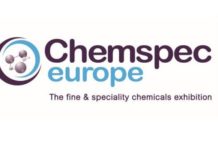Promethera Biosciences, a Belgian biotechnology company developing Promethera(R) HepaStem, a cell-based therapy for the treatment of liver-based metabolic diseases including Crigler-Najjar Syndrome and Urea Cycle Disorders, announces today that it has successfully treated a patient with liver progenitor cells enrolled in its Phase I/II trial.
The intervention was performed in January 2013 at the University Children’s Hospital Jeanne de Flandre in Lille, France.
Promethera Biosciences is currently conducting a Phase I/II clinical study involving Crigler-Najjar syndrome and Urea Cycle Disorders patients that has been approved by FAMHP (Belgian Authorities), MHRA (British Authorities), ANSM (French Authorities) and ISS (Italian Authorities). This patient is the first one treated in France and the first one treated outside of Belgium where the study was launched.
The trial, a prospective, open label, multicenter Phase I/II study is a dose escalation study designed to evaluate the safety and the preliminary efficacy of Promethera(R) HepaStem in Urea Cycle Disorders and Crigler-Najjar Syndrome pediatric patients. These diseases are extremely rare. Most young patients have only limited therapeutic options and may die at an early stage.
On January 25, 2013, a 14-year-old adolescent suffering from Ornithine Transcarbamylase Deficiency (OTCD, one of the Urea Cycle Disorders) was treated with liver progenitor cells. The patient is the first to have been treated in France. The administration of the cells took place at Hopital Jeanne de Flandre in Lille, France. It was coordinated by the reference center of Inherited Metabolic Diseases of Child and Adulthood of Dr. Dries Dobbelaere in collaboration with the Paediatric Clinical Investigation Center of Prof. Frederic Gottrand.
The treatment was successfully applied over three days. The cell formulation was performed both on clinical site in Promethera’s mobile formulation unit and at the premises in Mont-Saint-Guibert, Belgium. The patient was discharged in good condition and is doing well. He is being closely monitored by Dr Dobbelaere’s medical team.
Administration of Promethera(R) HepaStem was already successfully performed in four more patients at the Cliniques Universitaires Saint-Luc in Brussels, Belgium. The safety data collected so far supports the good tolerability of Promethera(R) HepaStem in the phase I/II clinical study and warrants further enrolment of new patients.
“We expect that this innovative treatment will address an important unmet need for physicians and patients. It will improve their quality of life and ease the daily disease management,” says Dr Dries Dobbelaere.
“We are very pleased with the progress of this Phase I/II trial. With the treatment of a patient abroad, using our mobile formulation unit, we have demonstrated the feasibility of such a treatment anywhere in Europe,” says Eric Halioua, co-founder and chief executive officer of Promethera Biosciences.
Professor Etienne Sokal, co-founder of Promethera Biosciences and chief scientific officer, paediatric hepatologist at Cliniques Universitaires, Saint Luc, Belgium and director of UCL’s Cell Therapy Research Lab, Belgium adds: ”With this first patient treated outside the founding clinical site, Promethera Biosciences has shown that liver stem cell therapy could become a widely accessible medicinal therapy, which can be applied for all patients in need within their own metabolic treatment center.”
Dr. Beatrice De Vos, chief medical officer of Promethera Biosciences concludes: “A close and profound collaboration between the clinical teams in Brussels, in Lille and at Promethera is the cornerstone of this successful outcome. We are very keen to share this expertise with other centers in Belgium, France, UK and Italy participating in this trial.”
The clinical centers in UK and Italy are preparing to welcome the next patients for this clinical trial.
The major innovation of Promethera(R) HepaStem is in the simplicity of the treatment – a simple injection into the vein leading to the liver. Promethera(R) HepaStem could be used to treat a wide variety of liver pathologies. Thanks to the industrial development, the potential for treating hundreds of patients from a single liver could become a reality.
About the phase I/II clinical trial
Since the discovery in 2005 of HHALPC (Heterologous Human Adult Liver Progenitor Cells, forming the basis for Promethera(R) HepaStem product) by Professor Etienne Sokal and Dr Najimi at the UCL laboratories, Brussels, Promethera Biosciences has made considerable scientific advances.
The proof of concept for the therapeutic use of the cells has been demonstrated in different animal models. Between 2009 and 2011, the ‘proof of concept’ in man has been studied by treating three patients suffering respectively from Ornithine Transcarbamylase deficiency (a form of Urea Cycle Disorders), Crigler Najjar syndrome and type I glycogenesis with HHALPC, all by Professor Etienne Sokal at Cliniques Universitaires Saint-Luc, Brussels, Belgium within the framework of the hospital exemption rules and with the approval of the Ethics Committee.
These various achievements have enabled Promethera Biosciences to obtain authorizations from the British, Belgian, French and Italian regulatory authorities to initiate the phase I/II clinical study with Promethera(R) HepaStem. In the clinical study, the product is assessed in a paediatric setting involving children suffering from Crigler-Najjar syndrome or Urea Cycle Disorders. Most young patients have only limited alternative therapeutic options and may die at an early age. Promethera Biosciences has received funding from the Walloon Region by means of conditional loans to perform the phase I/II clinical study with Promethera(R) HepaStem.
About Promethera Biosciences:
Promethera Biosciences is a pharmaceutical company that develops innovative therapies for the treatment of liver disease. It is currently developing two products based on a newly discovered and patented cell, the Heterologous Human Adult Liver Progenitor Cells (HHALPC):
• Promethera(R) HepaStem is a cell therapy product based on the use of allogeneic stem cells isolated from healthy adult human livers (Heterologous Human Adult Liver Progenitor Cells, HHALPC). These cells can be used to treat a wide variety of liver diseases, from rare inborn metabolic diseases (which can be classified as “orphan diseases” and mainly affect children), to acquired deficiencies affecting adults, such as fulminant hepatitis or liver fibrosis. This treatment has already received the orphan drug designation from the European Medicines Agency for the treatment of two very debilitating paediatric pathologies and from the Food and Drug Administration (USA) for both indications.
• Promethera(R) HepaScreen is a different, non-therapeutic product that uses the same adult human liver-derived stem cells as a biotechnology tool designed for evaluation of new chemical entities. This product meets a real need in the market, which currently lacks sufficiently predictive models to assess the hepatic metabolism of chemical compounds in the body. This unique cell model will be made available to the pharmaceutical industry to evaluate the metabolism and toxicity of new drugs in humans in a more reliable way than animal experimentation, thereby reducing the need and number of animals for such experiments.
Promethera Biosciences is a spin-off of the Universite Catholique de Louvain (UCL), founded in 2009 by Sopartec S.A., UCL’s technology transfer company, Professor Etienne Sokal, a leading expert in pediatric liver disease and cell therapy and Eric Halioua, CEO of the company. Promethera Biosciences is located in Mont-Saint-Guibert, Belgium.
Since its creation in 2009, Promethera Biosciences has raised EUR 34 million in two financial rounds, in capital and subventions and loans from the Wallon Region. The main investors are Vesalius Biocapital, Mitsui Global Investment, BI Venture Fund, Shire and SRIW.
Promethera Biosciences has 44 employees led by an experienced management team. For more information, please visit http://www.promethera.com


























